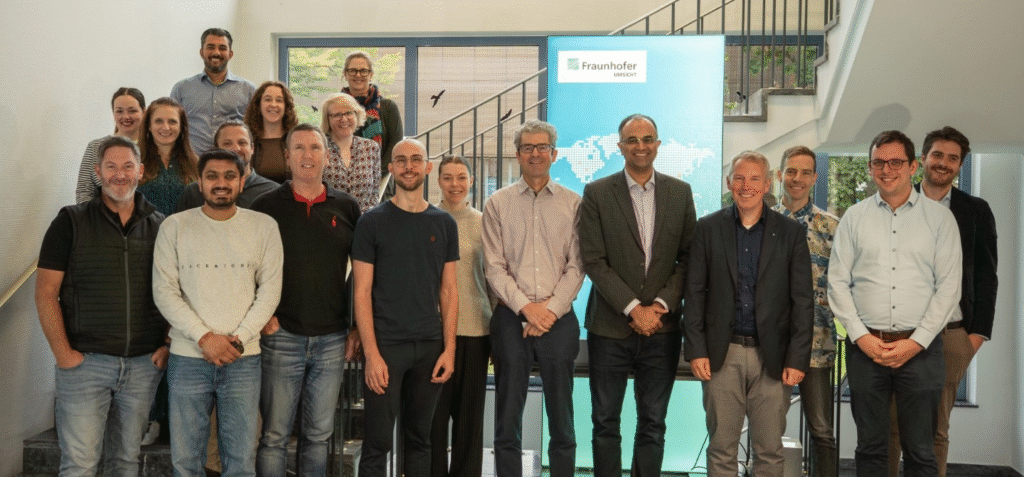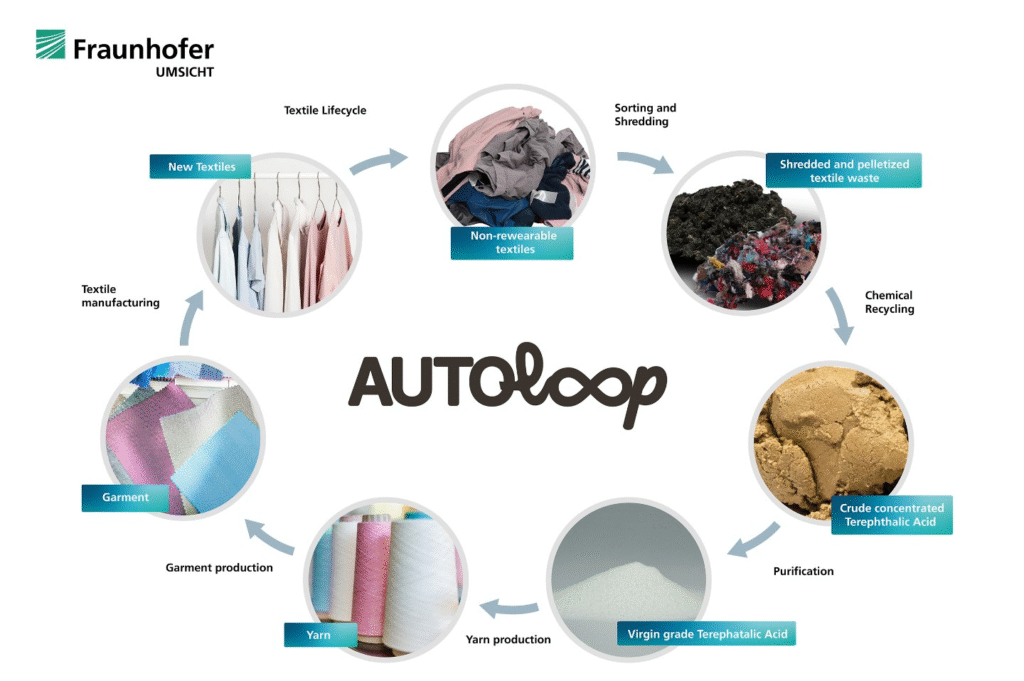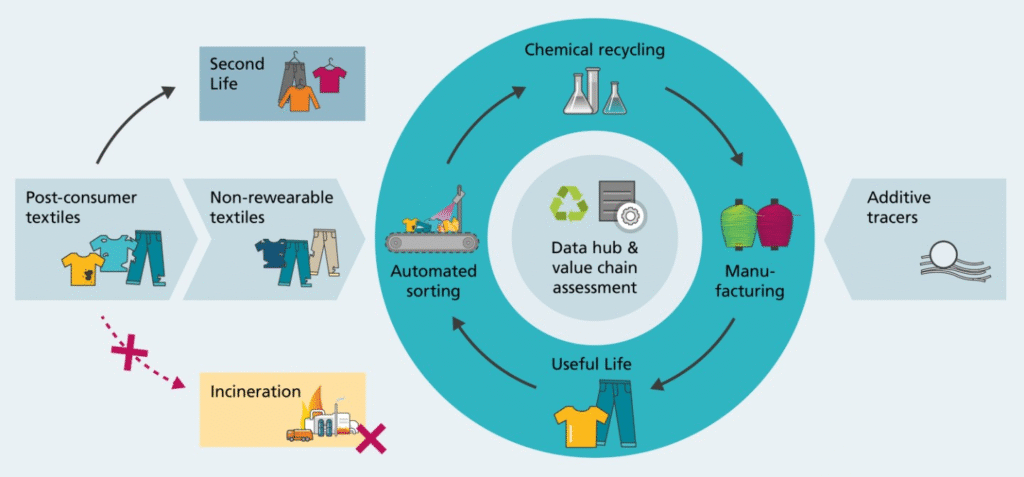A major European research initiative led by Fraunhofer UMSICHT has begun work on integrated recycling technologies aimed at tackling the region’s growing textile waste challenge. The project, known as AUTOLOOP, focuses on developing automated sorting, tracing and closed-loop recycling systems for polyester-based textiles, with the long-term goal of processing up to 1.24 million tonnes of textile waste annually by 2050 while creating more than 130,000 green jobs across the EU.
Europe’s textile and clothing sector employs 1.3 million people and generates 170 billion EUR each year, but also produces 10.9 million tonnes of post-consumer textile waste, of which less than 1% is currently recycled back into new textiles through closed-loop systems.

The project partners of the Autoloop Project at the kick-off meeting in Oct 2025 at Fraunhofer UMSICHT in Sulzbach-Rosenberg.
Dr Thomas Fehn, Coordinator of AUTOLOOP from Fraunhofer UMSICHT, stated, “The textile industry is at a critical juncture. This project represents a paradigm shift from waste to resource, transforming discarded clothing into valuable raw materials for new garments.”

The chemical recycling of synthetic fibres (PET) into new basic chemicals is a technological building block being researched in the AUTOLOOP project.
Key Technologies Under Development
AUTOLOOP integrates several advanced solutions being validated by research and industry partners:
- AI-based Sorting: ZORITEX’s system uses hyperspectral near-infrared technology to identify over 15 fibre types and blends. The automated method could increase sorting throughput tenfold and cut costs by 50–75%.
- Chemical-Free Recycling: AALTO University’s Ioncell® process extracts cellulose fibres using ionic liquid solvents, achieving recycling rates above 95% without hazardous chemicals.
- Synthetic Fibre Recovery: Fraunhofer UMSICHT and SKZ’s ReSyn technology breaks down synthetic fibres into high-purity building blocks, even when working with contaminated textiles.
- Smart Fibre Tracing: TLX’s IntegriTEX® embeds invisible identifiers into fibres, enabling contactless detection and full supply-chain transparency.
- Digital Integration: TEXROAD’s Data Hub standardises and connects information across the recycling chain, supporting future regulatory requirements such as the Digital Product Passport.

Pyrolysis research reactor for the chemical recycling of plastic-containing textiles at Fraunhofer UMSICHT in Sulzbach-Rosenberg
Expected Impact by 2050
If scaled successfully, AUTOLOOP could enable the EU to:
- Recycle 1.24 million tonnes of textile waste annually
- Achieve 96% material recovery
- Create over 130,000 green jobs
- Lower municipal waste management expenses (currently 60–110 EUR per tonne)
- Reduce dependence on virgin raw materials in the textile sector
Collaboration Across Europe
The initiative brings together 14 partners from seven countries, including ZORITEX (UK), AALTO University (Finland), Fraunhofer UMSICHT (Germany), TLX (Germany), TEXROAD (Netherlands), along with ELT (UK), TRASBORG (Denmark), VTT (Finland), SKZ (Germany), S4L (UK), LEEDS (UK), NORION (Denmark), TEMASOL (Switzerland), and LGI (France).
Looking Forward
AUTOLOOP supports Europe’s shift toward circular production models as new waste management regulations and demand for sustainable textiles continue to rise. The project aims to demonstrate how advanced recycling technologies can be integrated into efficient large-scale systems. It is funded through the European Union’s Horizon2020 research and innovation programme under grant agreement No 101181624.

